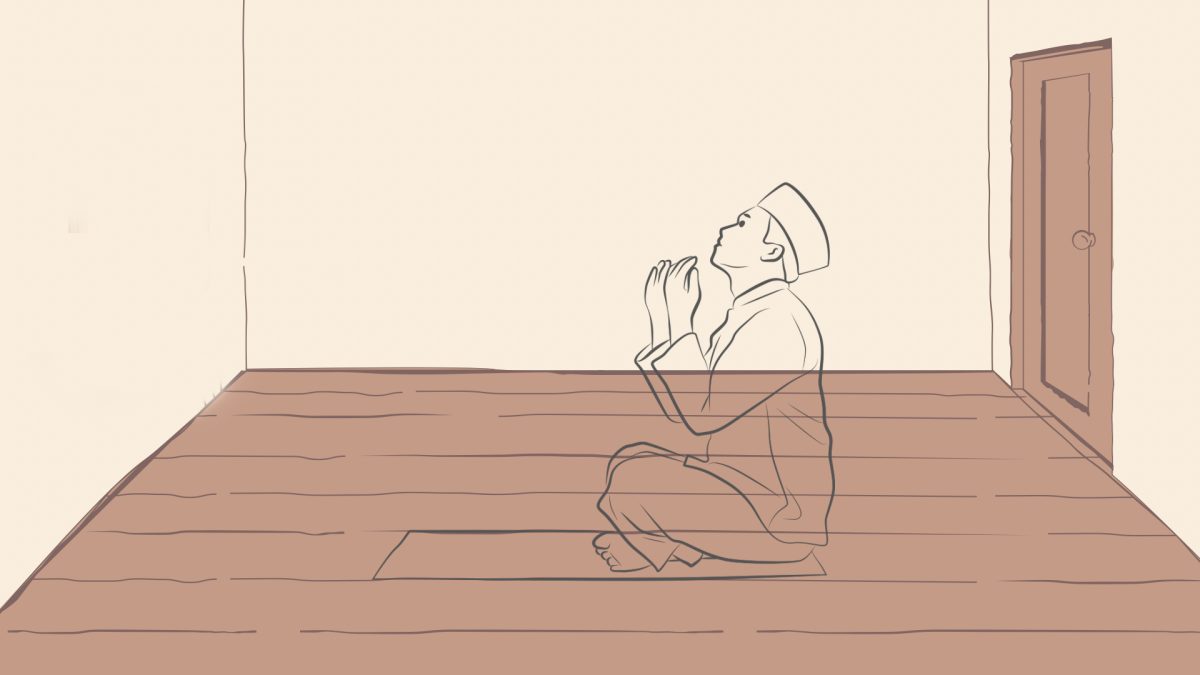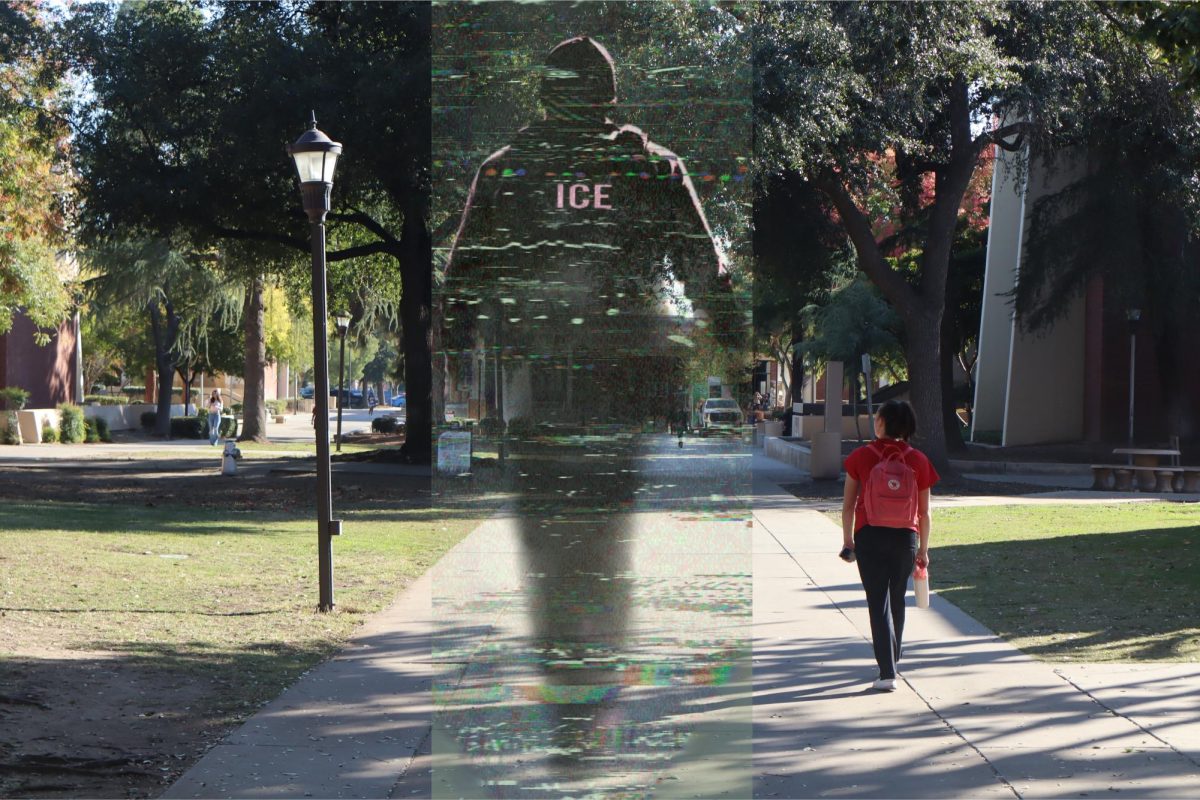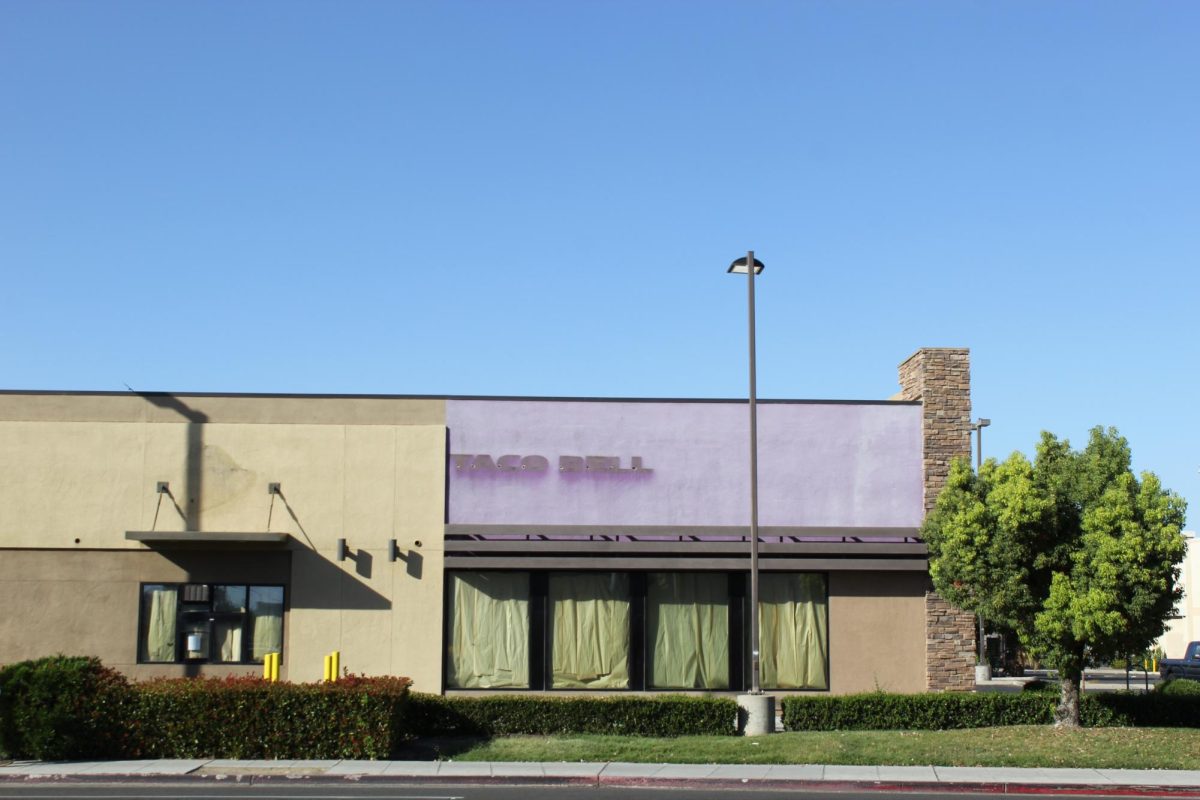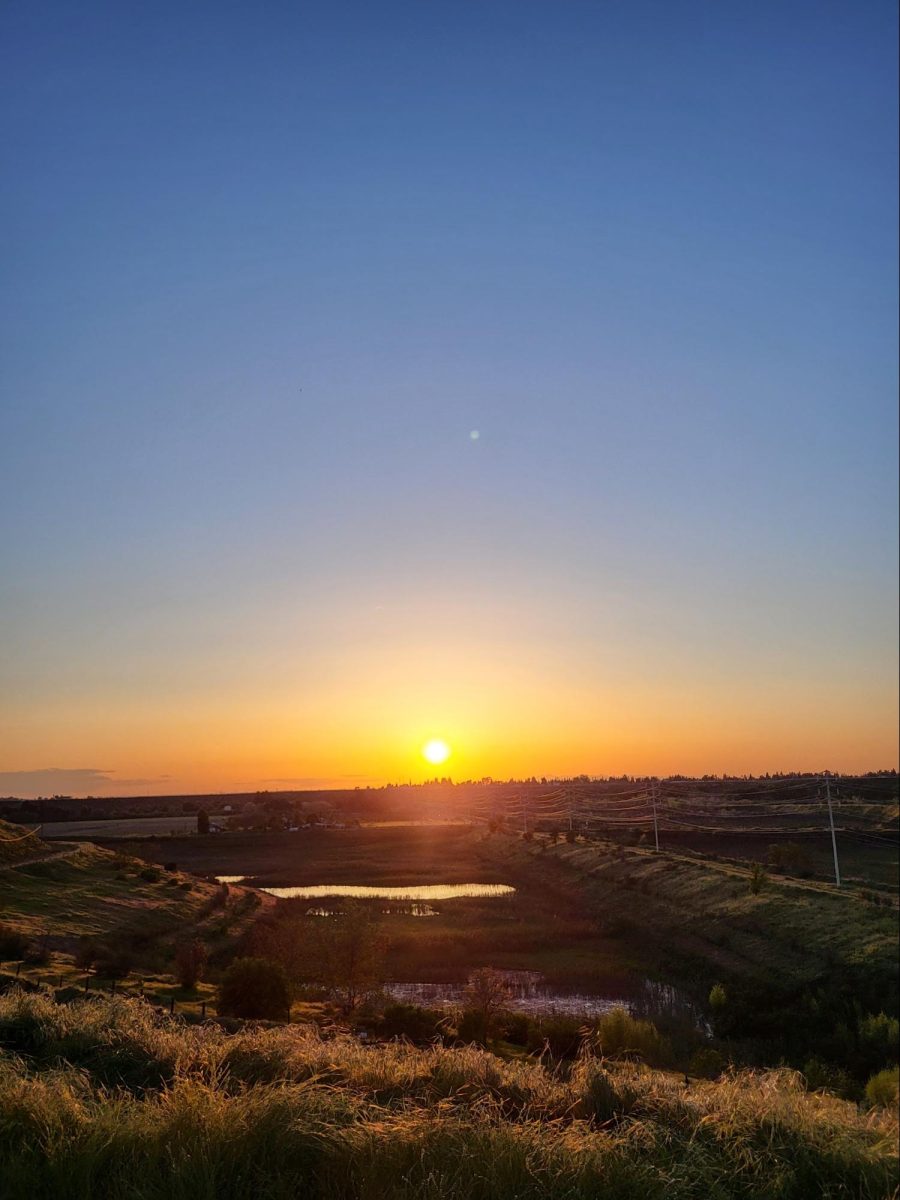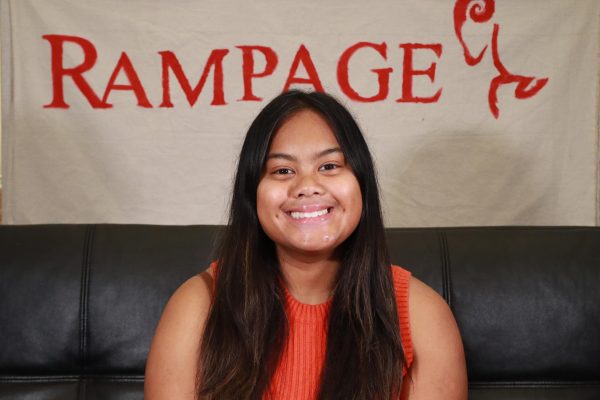Mohammed Hassan, 20, is a computer engineering major at Fresno City College. He is also a devout Muslim.
“Praying is the best thing I can do in my day,” Hassan said. “It’s the most calming time of my day.”
Hassan described the importance of completing the five daily prayers as “obligatory” for any and all Muslims. He said it is a way of distinguishing Muslims from non-believers.
Hassan described it as a way of regaining focus amidst outside distractions and “healing for the soul.”
As a busy college student, Hassan looks forward to being able to take a step back and perform one of his prayers, the Dhuhr prayer, typically done after 12 p.m.
Hassan said that sometimes he will feel really tired from his responsibilities and the pressure he feels, but after the prayer, everything is gone and he’s ready to “start fighting life again.”
Six months after graduating high school, Hassan moved from Saudi Arabia to pursue higher education at FCC. Growing up in Saudi Arabia, Hassan was accustomed to comfortably performing his prayers in mosques. However, that was not the case when he came to FCC.
“It was a difficult experience at first like the idea, [that] there’s no place to pray. Sometimes I [would] feel afraid… that someone [will] do something to me,” Hassan said.
Hassan has also heard stories on the internet about people getting harmed trying to pray while in public.
Despite that, Hassan continues to pray regularly and chooses places where there are not a lot of people on campus.
Hassan is not alone in having to pray in a public setting.
The quest for a prayer/meditation room was a journey started by the former Fresno City College, Muslim Student Association (MSA).
According to former MSA president Khadijah Choudhery, the club was established at FCC in 2021 and worked to get a prayer/meditation room shortly after the club’s origin. Despite their efforts, the students were unable to get the room.
“Honestly, my entirety of being on MSA was dedicated to the prayer room,” Choudhery said.
She said that while attending FCC, she had never felt unwelcome or that she did not belong as a Muslim student.
“I felt like I had my place,” Choudhery said.
However, while on campus, Choudhery and her friend were approached by an individual who appeared to be under the influence. She said she felt the individual had seen that she was a Muslim and felt the
need to approach them.
Choudhery used the uncomfortable encounter as an example, in a meeting
with FCC Vice President Omar Gutierrez as a way to help him understand Muslim student’s experiences better.
“Praying in public is just not safe for us,” Choudhery said.
However, it did not inspire any action to create the meditation room.
Choudhery said the group had met with Gutierrez and were told there was a
potential space for them to use. However, in a follow up meeting they were not given direct permission to use that location.
She expressed feeling “dismissed” by Gutierrez and felt he was “uncooperative” throughout the process when discussing potential options for them.
According to Gutierrez, administration including himself were “very direct” and open with the students they met with about the lack of vacant space on campus. Gutierrez is responsible for overseeing buildings and facilities, budgets and spending at FCC.
Gutierrez explained that the meditation room was something the college was unable to accommodate at the time due to the lack of available space. Each building has to have a designated purpose. According to Gutierrez, the decision to designate a meditation room would involve both himself and the president of FCC. The most common facilities that are successfully created are instructional labs or offices that allow faculty and students to communicate, according to Gutierrez.
Gutierrez also shared that they were short on spaces even for faculty members. He said that they are hiring faculty that they do not have spaces for, which is a current problem the college is trying to address.
“We need to create spaces for them,” Gutierrez said.
Gutierrez related this example to a broader issue; minimizing space for
one purpose/group to create space for another.
He said that FCC is growing, but said that with that growth, “carries growing pains.” Nick Hernandez, a FCC political science professor and the former advisor of MSA, said the absence of a prayer/meditation room for students proposes a mental health issue.
Hernandez said that he’s learned from his students that, “Their prayer is a time of deep reflection and concentration, you can’t just do it anywhere.”
Hernandez said that he has witnessed a Muslim student praying out in the open, on the upper balcony of the Old Administration Building, because there were no other places to pray.
Hernandez expressed disappointment in the administration for not “acknowledging that it runs counter to their value system, to not acknowledge that it is a mental health issue, by not giving a space for them to practice, of any religion is shocking to me.”
Not being able to get student’s a place to pray or take a breather is not just a
religious issue but a mental health issue, according to Hernandez.
Gutierrez mentioned visiting Fresno State University’s prayer/meditation space to see what it was like.
However, “Community colleges are not necessarily approving these types of
rooms,” Gutierrez said.
Gutierrez explained that community colleges are funded differently than four-year universities like Fresno State that offer a meditation room.
“At the community college level, we get funded on how we utilize our space, and our efficiency within that space,” Gutierrez said.
Former Clovis Community College MSA advisor, Cindy Walker, confirmed that they were also unsuccessful due to lack of space. She added that students have been asking for it for years.
But Gutierrez said he did learn that other California community colleges were able to make this happen for their students, including Berkeley Community College.
Gutierrez said that FCC is “accepting of all religious stances and everybody’s
interpretation of who they are,” and wants to continue to support students reaching their educational goals.
But when it comes to the prayer/meditation room, Gutierrez said it was just something the college felt it did “not want to commit to,” at the time.
Gutierrez stated that praying on campus is something every student has the right to do if they choose, but it doesn’t necessarily require a room to be created for that.
But for students like Hassan, praying is a crucial part of their day and ultimately their religion is something that cannot be “left at the door” when they come to college.
The Muslim community he has in Fresno are described as his “family here” and a lifeline while he is away from his family in Saudi Arabia.
“Most of my time, if I don’t have college, is going to the Masjid or the mosque… it’s basically my home,” Hassan said. “All my friends and family are there [at the mosque].”
The closest mosque to Fresno City College is 5.1 miles away by car, according to Google maps.
Hassan did not want to speak on behalf of all Muslims, but “Having a meditation room would be wonderful, and would really help [other] Muslims on campus,” Hassan said.
According to Hassan, in order for a Muslim to pray in the room, it would just need to be free of any pictures or statues.
“Just a room to pray in, nothing that’s hard,” Hassan said.

